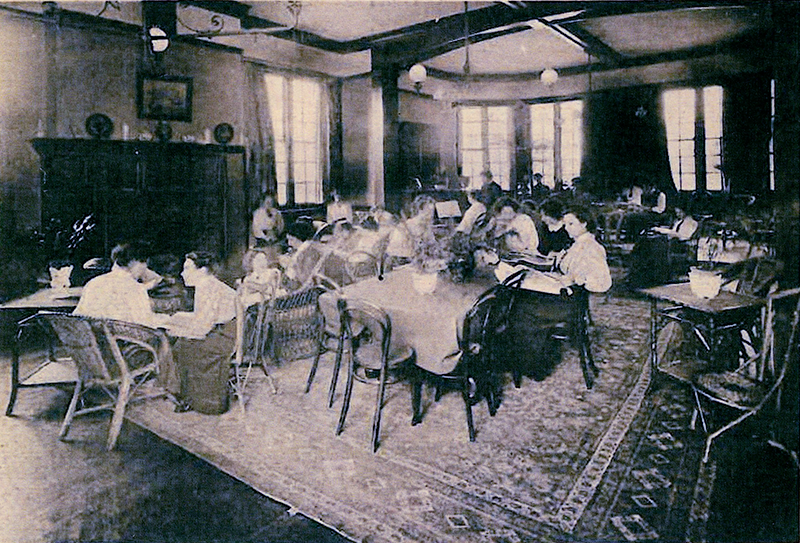Since 1994, Heritage Open Days have run every year shining a bright light on England's rich and diverse cultural heritage. This year, from 10-19 September, heritage sites across the county reflected on the theme of 'voices unheard', exploring 'stories from women, children, the working class and agricultural workers, minority groups and even animals that have somehow contributed to the history of Lincolnshire'.
Bishop Grosseteste University has been educating students for over 150 years, but its early history was devoted to training young 'school mistresses'. In January 1862, 'Lincoln Diocesan Training College for Schoolmistresses' opened its doors for women who aspired to be teachers. As seen in the image below, the 'Joyce Skinner Building' is one of the original college buildings.

During the first fifty years some 1,320 girls entered Lincoln Diocesan Training College. After gaining their teaching certificates, some women went on to have careers in elementary schools. Others passed away far too young—some married, and their daughters later attended the college. A few daring women even travelled to far off British colonies to teach.
Interestingly, the vast majority of trainee 'schoolmistresses' came from working-class backgrounds. During the nineteenth century, teaching was considered a working-class profession, as it was deemed immoral for the upper classes to educate working class children.

For a young woman to be given a chance to study at a teacher training college in the late nineteenth century there was an expectation that she would have successfully carried out the role of an apprentice teacher. 'Pupil Teachers' aged between 13 and 18 years of age, spent four to five years shadowing teachers in an elementary school. Alongside teaching the youngest school children, they also carried out domestic duties.
Pupil Teachers were also expected to conduct their study before or after the school day. While extremely demanding, the pupil teacher scheme was also preparing the young women to take the Queen's Scholarship Exam. This exam ultimately determined their national ranking. It was from this list that College Principals selected entrants. The Principal at Lincoln Diocesan Training College used the Queen's Scholarship List, but also chose candidates based on their physical well-being, religious knowledge, and geographical proximity, preferring candidates from Lincolnshire or nearby counties of Nottinghamshire and Derbyshire.

Once at the college, the young women could not escape their working-class roots as domestic duties were still required. The college décor was plain, the amenities were sparse, and the food was basic. However, despite a rudimentary diet of potatoes, meat and bread, regular college food was more than what many of the girls were used to. A fascinating medical record held within the BGU Archive reveals that one group of undernourished trainee teachers managed to put weight on at the turn of the twentieth century, and their general health improved considerably during their two years at college.
Related Posts

Celebrating volunteers at the Ermine Library and Community Hub

Association of Employment and Learning Providers visits campus

Greater Lincolnshire Social Economy Academy Programme renewed for 2025/26

BGU Lecturers contribute chapters to ‘The Guide to LGBTQ+ Research’

Celebrating academic writing podcast shared by BGU colleagues

Student and Lincolnshire binman self-publishes first book detailing newfound purpose despite difficult beginnings
